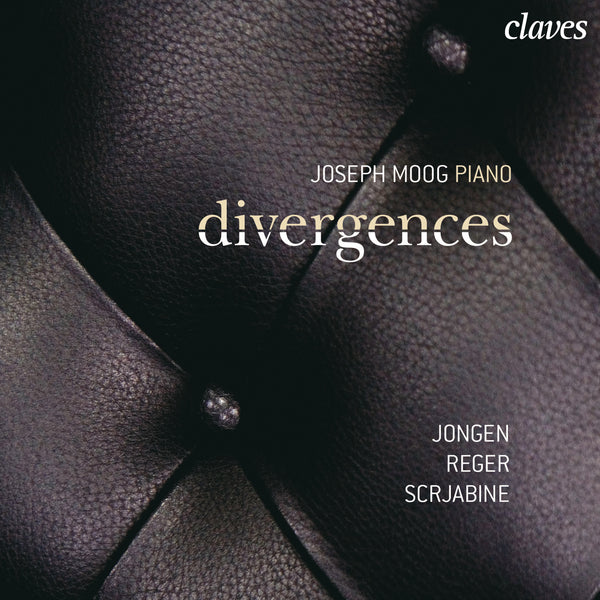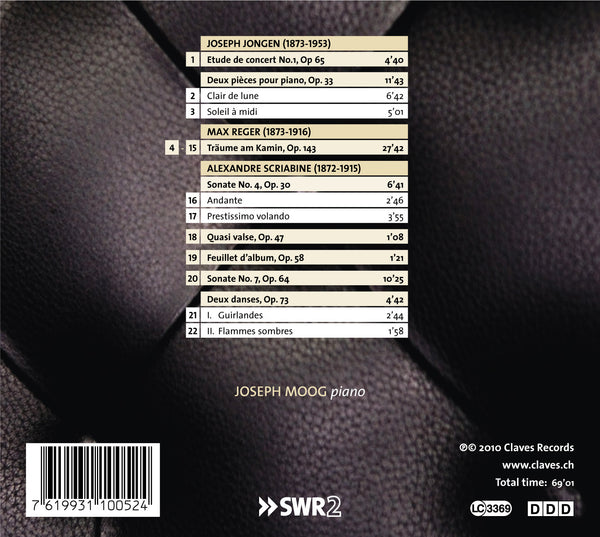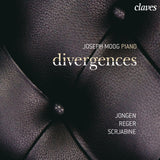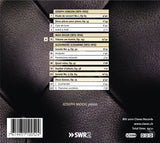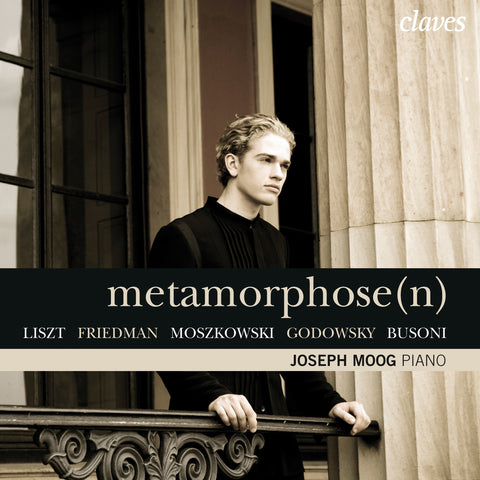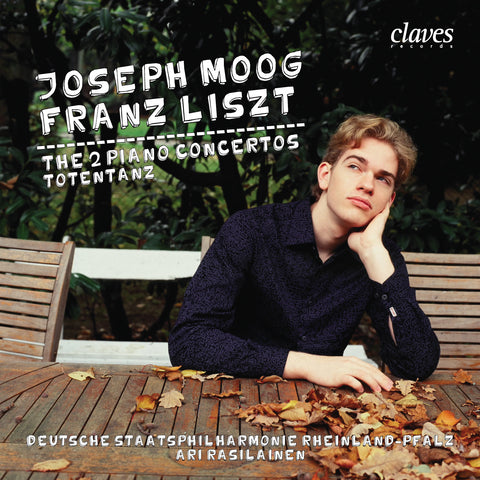(2010) Jongen, Reger & Scriabin: Divergences
Kategorie(n): Piano
Instrument(e): Piano
Hauptkomponist: Alexander Scriabin
CD-Set: 1
Katalog Nr.:
CD 1005
Freigabe: 09.02.2010
EAN/UPC: 7619931100524
- UPC: 884385875312
Dieses Album ist jetzt neu aufgelegt worden. Bestellen Sie es jetzt zum Sonderpreis vor.
CHF 18.50
Dieses Album ist nicht mehr auf CD erhältlich.
Dieses Album ist noch nicht veröffentlicht worden. Bestellen Sie es jetzt vor.
CHF 18.50
Dieses Album ist nicht mehr auf CD erhältlich.
Dieses Album ist nicht mehr auf CD erhältlich.
Inklusive MwSt. für die Schweiz und die EU
Kostenloser Versand
Dieses Album ist jetzt neu aufgelegt worden. Bestellen Sie es jetzt zum Sonderpreis vor.
CHF 18.50
Dieses Album ist nicht mehr auf CD erhältlich.
This album has not been released yet.
Pre-order it at a special price now.
CHF 18.50
Dieses Album ist nicht mehr auf CD erhältlich.
Dieses Album ist nicht mehr auf CD erhältlich.
SPOTIFY
(Verbinden Sie sich mit Ihrem Konto und aktualisieren die Seite, um das komplette Album zu hören)
JONGEN, REGER & SCRIABIN: DIVERGENCES
The young German pianist presents rather rare pages of this repertoire; of which he is both guide and adamant champion. “Jongen; Reger and Scriabin were born in the same period; but not in the same space of time”; writes Etienne Barillier in the introductory booklet. “It would no doubt be rather simplistic to oppose them in the way that " French spirit "; " German soul " and " Russian mysticism " are opposed; yet each universe of sound is a total contrast; and fed by the genius of their own individual musical traditions.”
Joseph Jongen (1873-1953) is Belgian and bathes in the inheritance of the great French masters of the turn of the century - Franck; Fauré; Chausson; Ravel; Debussy. A perfect disciple of Johann-Sebastian Bach; Max Reger also owes a lot to Johannes Brahms – an often-forgotten fact – as well as to Schumann and Chopin. As for Alexander Scriabin; he does not fit into any category.
“His music aims ever more explicitly to express both pure desire and pure sound: on the one hand there is the formidable; continuous and vertiginous unfurling of Tristan's theme of desire; with its obsessive rising figures; its constantly broken; yet constantly repeated surge; its appeasement in death. On the other hand; there appears an increasingly attentive meditation; ever more ecstatic; on the very mystery of sound; in its abstract purity”. Which is in total agreement with Joseph Moog’s interpretation.
What an ascent! In 2006; Joseph Moog won the Marguerite Dütschler Prize at the Sommets Musicaux de Gstaad festival and; as a result; recorded Liszt’s two Concertos and his Danse Macabre. A promising start with Claves; which led to a highly successful solo album two years later: “Metamorphonse(n)”. A tribute to a virtuosity that is full of finesse; today reaching a new solo recital; dedicated to the most contrasting worlds of the first half of the 20th century.
The young German pianist presents rather rare pages of this repertoire; of which he is both guide and adamant champion. “Jongen; Reger and Scriabin were born in the same period; but not in the same space of time”; writes Etienne Barillier in the introductory booklet. “It would no doubt be rather simplistic to oppose them in the way that " French spirit "; " German soul " and " Russian mysticism " are opposed; yet each universe of sound is a total contrast; and fed by the genius of their own individual musical traditions.”
Joseph Jongen (1873-1953) is Belgian and bathes in the inheritance of the great French masters of the turn of the century - Franck; Fauré; Chausson; Ravel; Debussy. A perfect disciple of Johann-Sebastian Bach; Max Reger also owes a lot to Johannes Brahms – an often-forgotten fact – as well as to Schumann and Chopin. As for Alexander Scriabin; he does not fit into any category.
“His music aims ever more explicitly to express both pure desire and pure sound: on the one hand there is the formidable; continuous and vertiginous unfurling of Tristan's theme of desire; with its obsessive rising figures; its constantly broken; yet constantly repeated surge; its appeasement in death. On the other hand; there appears an increasingly attentive meditation; ever more ecstatic; on the very mystery of sound; in its abstract purity”. Which is in total agreement with Joseph Moog’s interpretation.
Return to the album | Composer(s): Alexander Scriabin | Main Artist: Joseph Moog








